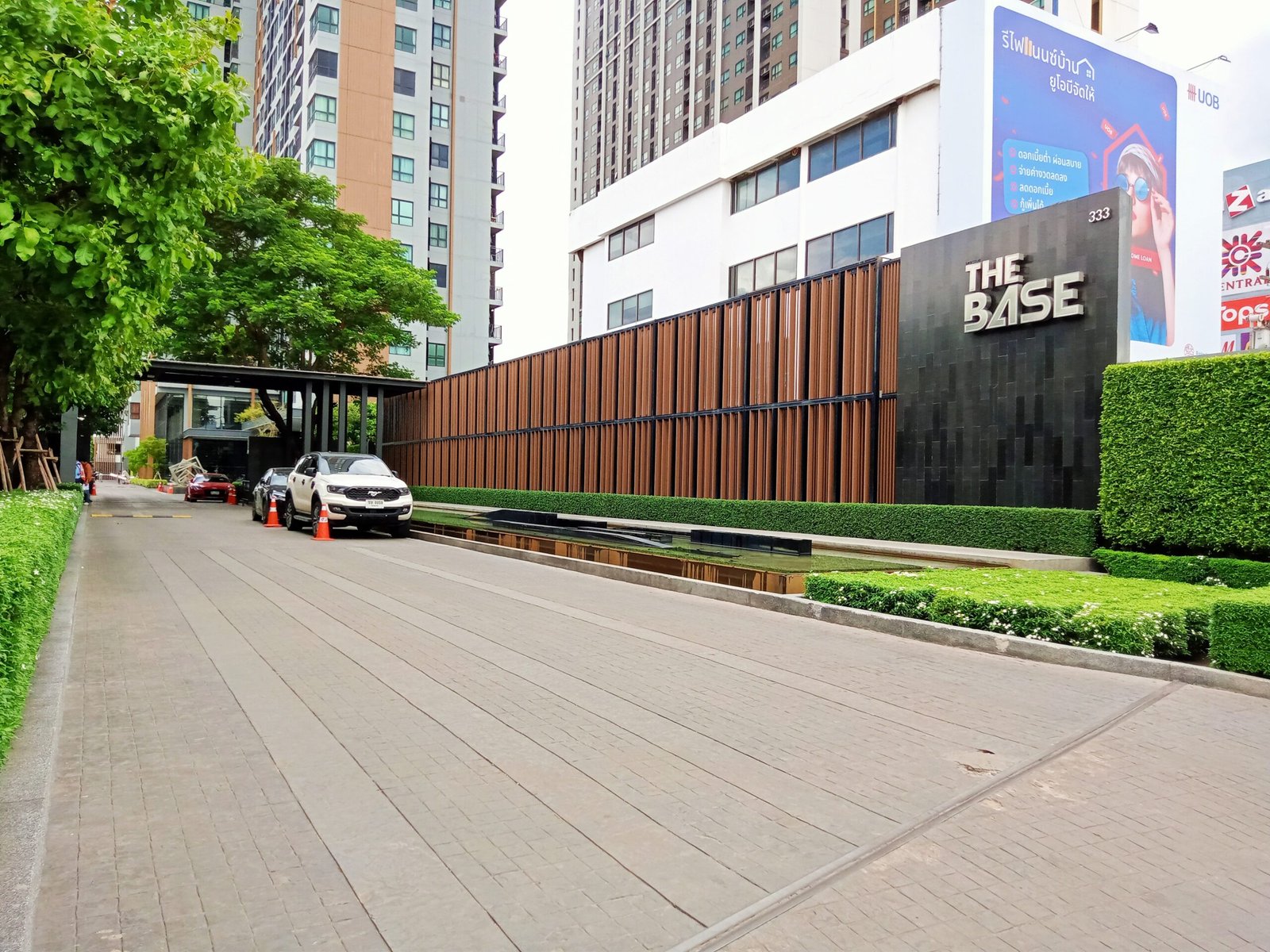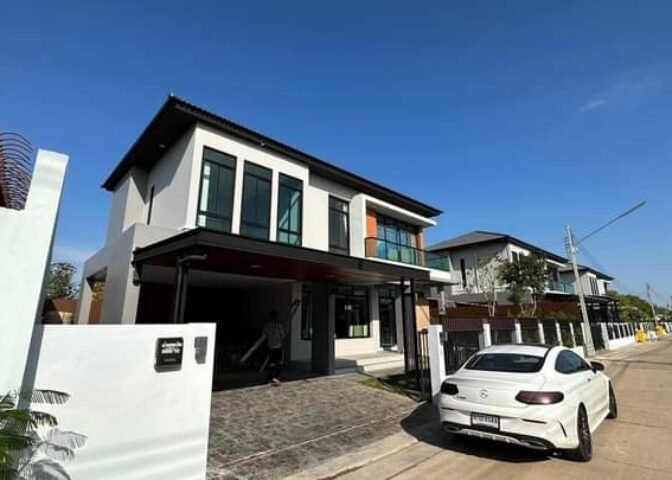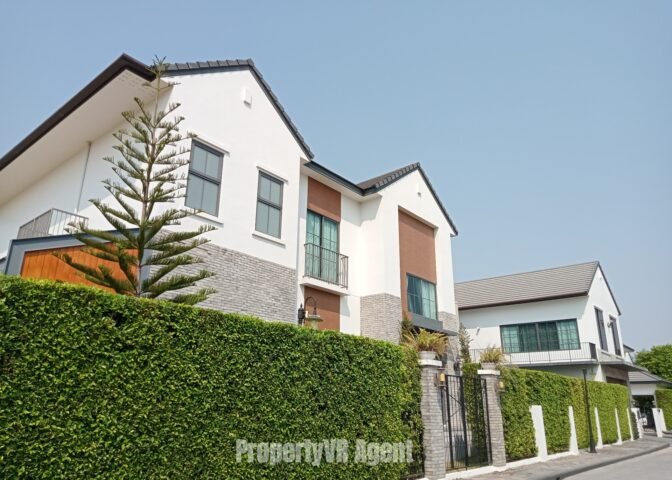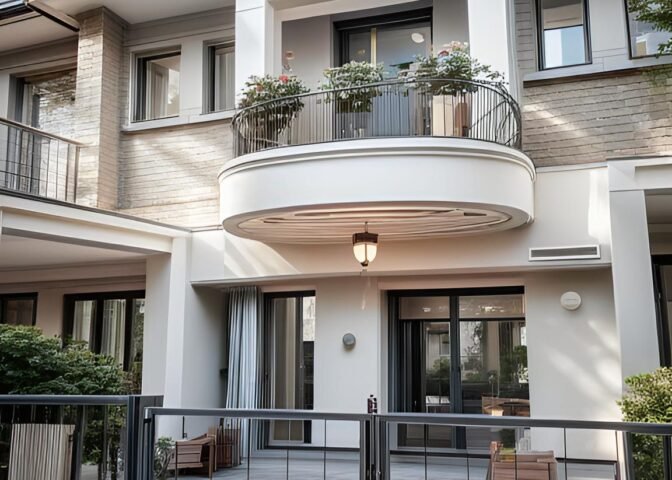Introduction to the Thai Real Estate Market
The Thai real estate market has emerged as a significant player in Southeast Asia, drawing considerable interest from foreign investors. This interest is underpinned by several key factors, including Thailand’s strategic location, robust economic growth, and government initiatives aimed at fostering a favorable investment climate. These elements collectively create a compelling case for investing in Thai real estate.
Thailand’s geographic positioning in the heart of Southeast Asia offers distinct advantages. The country serves as a gateway to the region, facilitating trade and investment flows. Its well-developed infrastructure, including international airports, seaports, and an extensive road network, further enhances its appeal as a business hub. These factors make Thailand an attractive destination for foreign investors seeking to capitalize on regional economic integration.
Economic growth in Thailand has been steady, with the country demonstrating resilience in the face of global economic uncertainties. Key sectors such as tourism, manufacturing, and services have shown robust performance, contributing to a stable economic environment. The government’s commitment to economic reform and development has also played a pivotal role in sustaining growth. Foreign investment is actively encouraged through various incentives, including tax breaks and simplified business regulations, making it easier for international investors to enter the Thai market.
Historical trends in the Thai real estate market reveal a pattern of consistent growth. Urbanization, population growth, and increasing foreign interest have driven demand for residential, commercial, and industrial properties. Major cities like Bangkok, Phuket, and Pattaya have seen substantial real estate developments, catering to both domestic and international buyers. The luxury real estate segment, in particular, has gained traction among high-net-worth individuals seeking investment opportunities and second homes.
Government policies have been instrumental in shaping the real estate landscape. Initiatives such as the Eastern Economic Corridor (EEC) project aim to transform the region into a leading economic zone, attracting significant foreign investment. Additionally, the relaxation of property ownership regulations for foreigners has made it more feasible for international buyers to invest in Thai real estate.
In essence, the Thai real estate market presents a dynamic and promising environment for foreign investors. Its strategic location, economic stability, and supportive government policies collectively enhance its attractiveness, setting the stage for lucrative investment opportunities.
Current Trends in Foreign Investment
Foreign investment in the Thai real estate market has seen significant growth in recent years, driven by a combination of favorable economic conditions, robust tourism, and competitive property prices. Key regions attracting foreign investment include Bangkok, Phuket, Pattaya, and Chiang Mai. Bangkok, the capital, remains a hotspot due to its vibrant economy and extensive infrastructure. Phuket and Pattaya appeal to international buyers seeking vacation homes, while Chiang Mai is favored for its cultural richness and serene environment.
Different types of properties are in demand among foreign investors. Residential properties, particularly condominiums, are highly sought after due to their affordability and the ease of ownership under Thai law, which allows foreigners to own condominiums outright. Luxury properties, including high-end villas and penthouses, are also popular, especially among investors from China, Russia, and Europe, who are drawn to Thailand’s premium lifestyle offerings. Commercial real estate, such as office buildings and retail spaces, attracts investors looking to capitalize on Thailand’s growing economy and business opportunities.
The profile of foreign investors in Thai real estate is diverse. Chinese investors continue to dominate the market, driven by China’s rising middle class and their increasing interest in overseas property investments. Investors from Japan, Singapore, and Hong Kong also play a significant role, often seeking properties for both investment and personal use. European buyers, particularly from the United Kingdom and Germany, are drawn to Thailand for its favorable climate and lower cost of living. These investors typically aim for long-term gains and lifestyle improvements.
Recent data indicates a steady increase in foreign investment, with reports showing a surge in property purchases by international buyers, particularly in the luxury segment. Emerging trends include a growing interest in sustainable and eco-friendly properties, as well as smart homes equipped with advanced technology. Additionally, there is a notable shift towards mixed-use developments that combine residential, commercial, and recreational facilities, catering to the evolving preferences of modern investors.
Overall, the current trends in foreign investment in Thai real estate reflect a dynamic market with diverse opportunities. Investors should stay informed about these trends to make strategic decisions and capitalize on the potential within this thriving sector.
Opportunities and Advantages for Foreign Investors
The Thai real estate market presents a myriad of opportunities and advantages for foreign investors, making it a compelling destination for those seeking to diversify their investment portfolios. One of the primary benefits is the potential for high returns on investment, driven by Thailand’s robust economic growth and burgeoning tourism industry. Condominiums, villas, and commercial properties in prime locations such as Bangkok, Phuket, and Pattaya are particularly attractive due to their high rental yields and capital appreciation prospects.
The legal and regulatory framework in Thailand offers several advantages for foreign investors. Foreign nationals are allowed to own condominiums outright, provided the foreign ownership quota does not exceed 49% of the total units in the building. Additionally, with long-term leasehold agreements, foreign investors can secure land for up to 30 years, with options to renew. These legal provisions provide a level of security and clarity that is essential for making informed investment decisions.
The Thai government has implemented various incentives to enhance the attractiveness of investing in real estate. Tax breaks are available for certain types of property investments, reducing the overall cost burden for foreign buyers. Moreover, special visa programs, such as the Thailand Elite Visa, offer long-term residency options for high-net-worth individuals who invest in property. These visa programs not only facilitate easier access to the country but also provide added benefits such as expedited immigration procedures and exclusive privileges.
Furthermore, Thailand’s strategic location in Southeast Asia, coupled with its well-developed infrastructure, makes it an ideal hub for business and tourism. The country’s commitment to improving its transport and communication networks further augments its appeal to foreign investors. With these comprehensive advantages, the Thai real estate market stands out as a lucrative and secure investment opportunity for foreign investors looking to capitalize on Asia’s dynamic growth trajectory.
Challenges and Considerations for Foreign Investors
Foreign investment in Thai real estate presents numerous opportunities, yet it is not without its challenges and considerations. One of the primary obstacles is the legal restriction on foreign ownership. Under Thai law, foreigners are not permitted to own land directly; however, they can own condominium units provided that foreign ownership in the building does not exceed 49%. This legal landscape necessitates a thorough understanding of ownership structures and potential workarounds, such as setting up a Thai company or entering into long-term lease agreements.
Market volatility is another significant concern for foreign investors. The Thai real estate market, like any other, is subject to fluctuations driven by economic conditions, political climate, and global events. Investors must be prepared for potential risks associated with these variables, which may impact property values and rental yields. Conducting comprehensive market research and staying informed about current trends can help mitigate these risks.
Due diligence is crucial in navigating the complexities of the Thai real estate market. This involves verifying property titles, understanding zoning regulations, and assessing the financial health of developers. Additionally, foreign investors should be cautious of potential scams and fraudulent activities, making it essential to work with reputable agents and legal advisors who have a deep understanding of the local market.
Engaging with local experts or advisors is indispensable for foreign investors. These professionals can provide invaluable insights into market conditions, legal requirements, and cultural nuances. They can also assist in navigating the legal process, which includes obtaining necessary permits, ensuring compliance with regulations, and facilitating transactions. Building a network of trusted local contacts can significantly enhance the investment experience and reduce potential pitfalls.
Understanding local market conditions is another critical aspect. Factors such as location, infrastructure development, and economic growth can greatly influence property values. Investors should consider these elements when selecting properties, aiming to invest in areas with strong growth potential and robust demand.
By acknowledging and addressing these challenges, foreign investors can make more informed decisions and optimize their investment strategies in the Thai real estate market.












